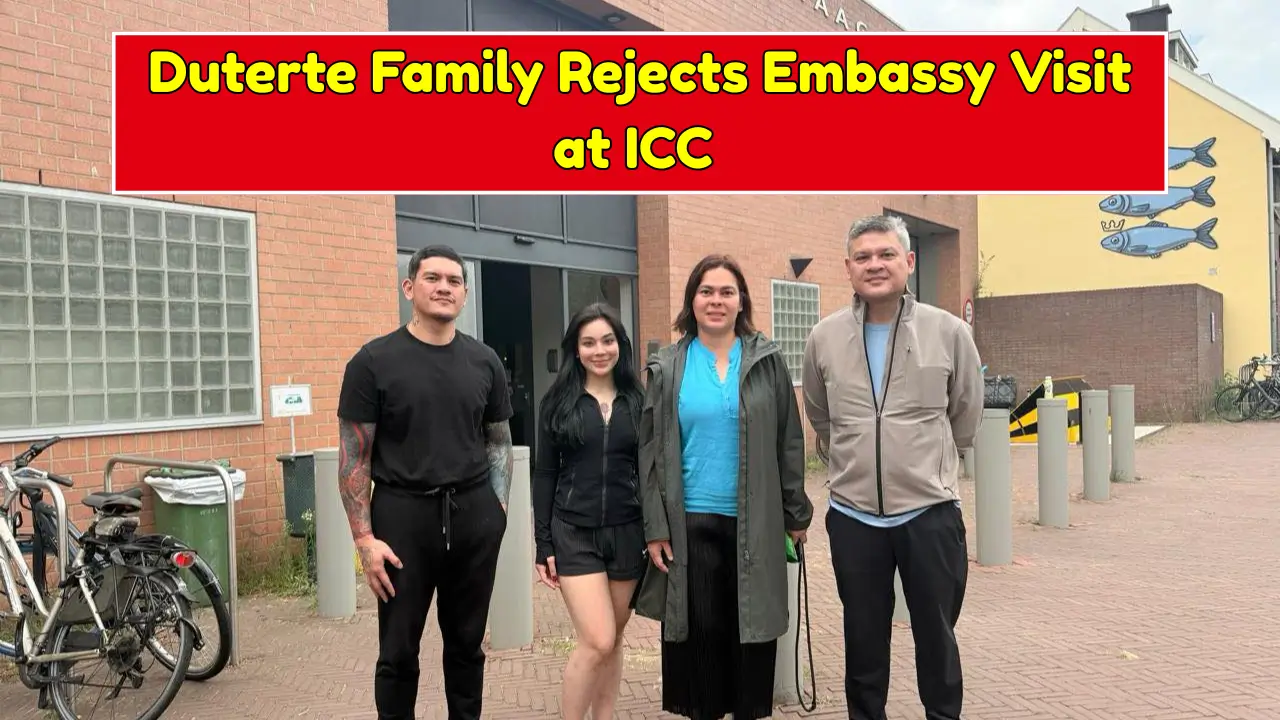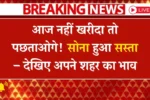The Duterte family has formally rejected a recent visit by the Philippine Embassy at the International Criminal Court (ICC) detention centre in The Hague, Netherlands.
The family cited critical safety and privacy concerns as the primary reasons for declining the embassy’s welfare check on former President Rodrigo Duterte.
This refusal adds a new layer of complexity to the ongoing ICC case that famously scrutinises Duterte’s tenure and alleged human rights violations, highlighting the fragile dynamics between the Duterte camp, Philippine authorities, and the ICC.
Background: Former President Duterte’s Detention at ICC
Rodrigo Duterte, the Philippines’ former president, has been detained in an ICC detention facility in The Hague since March 2025 following charges related to his administration’s controversial war on drugs, which allegedly involved extrajudicial killings.
His detention marks an unprecedented moment for a former Asian leader facing international criminal proceedings. The ICC case involves reviewing charges concerning multiple killings and human rights abuses during Duterte’s time from 2016 to 2022.
The former president’s legal team has engaged with court processes, including discussions about possible interim release conditions, while Duterte himself reportedly faces health challenges, raising questions about his fitness to stand trial.
The ICC detention centre context is therefore both legally and emotionally charged, with intense media scrutiny.
The Embassy Visit Controversy
The Philippine Embassy in The Hague conducted a welfare check visit aimed at ensuring the welfare of Duterte as a Filipino detained abroad. The visit was reportedly carried out without the consent or prior permission of the Duterte family, prompting a firm rejection from them.
According to official statements relayed by Duterte’s family, the embassy’s unilateral move raised concerns about the former president’s safety and privacy within the detention centre setup.
Vice President Sara Duterte, one of Duterte’s children and a prominent political figure, publicly stated the family’s position, emphasising that the conditions imposed by the ICC and the detention centre protocols must be fully considered and respected.
The family fears that uncoordinated visits from embassy officials could jeopardise Duterte’s safety amid strict ICC security and detention protocols.
Safety and Privacy Concerns Cited
The Duterte family’s rejection is grounded in several concerns:
- Security Risks: The detention centre has stringent security measures to protect detainees and limit outside interference. Unannounced or unauthorised visits could disrupt protocols, potentially putting detainees and staff at risk.
- Privacy Rights: The family insists on strict privacy for Duterte to avoid undue stress and intimidation, especially given the intense international media spotlight.
- Health and Well-being: According to family reports, Duterte has faced health challenges while in detention, including an incident where he was found unconscious, further elevating the need for controlled and coordinated welfare checks to avoid exacerbating his condition.
- Respect for Legal Process: The family stresses that any visits or interventions should occur with full transparency and through appropriate legal channels, maintaining respect for ICC authorities and Philippine diplomatic protocol.
Government and ICC Responses
The Department of Foreign Affairs (DFA) of the Philippines clarified that the embassy’s welfare checks are standard practice under the Vienna Convention on Consular Relations and Philippine laws protecting nationals abroad.
Embassy visits aim to monitor detainees’ well-being and ensure access to consular assistance.
Meanwhile, ICC officials have confirmed that detention centre policies are rigorously enforced, and all detainees receive medical and humanitarian care. ICC spokespersons reiterated their commitment to safeguarding the rights and welfare of detainees, including former President Duterte.
The situation underscores the delicate balance between diplomatic duties, detainee rights, and international legal processes. Former Senator Antonio Trillanes denied rumours of unauthorised visits by political figures, refocusing the narrative on official channels.
Table: Key Facts on Duterte ICC Detention and Embassy Visit
| Item | Details |
| Date of Duterte’s ICC Detention | March 2025 |
| Location of Detention Facility | The Hague, Netherlands |
| Charges Filed by ICC | Extrajudicial killings, human rights violations |
| Duterte Family’s Position on Embassy Visits | Rejected due to safety, privacy, and legal concerns |
| Embassy’s Stated Role | Conducting welfare checks as per consular duty |
| Health Reports | Reports of unconsciousness and ongoing medical checks |
| Philippine Government Statement | Embassy visits comply with diplomatic and legal protocols |
| ICC Detention Centre Policies | Strict security and detainee welfare protocols |
Implications for Philippine Politics and ICC Trial
The Duterte family’s rejection of the embassy visit reflects broader political sensitivities. Duterte’s detention is a key issue in Philippine politics, dividing opinions on issues of justice, sovereignty, and human rights.
The public statements by Sara Duterte and other family members signal a defensive posture protecting family privacy and dignity.
For the ICC, this incident demonstrates the challenges of managing high-profile detainees with significant political consequences. The court must navigate respecting detainees’ rights, enabling diplomatic missions to fulfil their roles, and upholding international legal procedures transparently.
It also raises questions about how detainees’ welfare is managed in multinational oversight settings and whether diplomatic missions can fully safeguard nationals facing international prosecution.
Looking Ahead: Legal and Diplomatic Developments
The ICC is expected to continue hearings to decide on Duterte’s fitness to stand trial, including medical presentations. The Philippine government, through its foreign service posts, remains involved in monitoring and supporting detained nationals, but family cooperation will be crucial.
Senators and congressional figures in the Philippines have also weighed in, with some pushing for inquiries into the legal and diplomatic implications of welfare visits and detainee rights.
As this high-profile case evolves, the Duterte family’s cautious stance signals careful navigation between supporting a detained family member and engaging with international legal frameworks that pose reputational and political risks.
Frequently Asked Questions (FAQs)
1. Why did the Duterte family reject the embassy visit to the ICC detention centre?
The family cited concerns over safety, privacy, and the need for coordinated legal channels in conducting welfare visits.
2. What is the role of the Philippine Embassy at the ICC detention centre?
The embassy conducts welfare checks for detained Filipinos abroad, following international diplomatic protocols under the Vienna Convention.
3. Has former President Duterte faced health issues in detention?
Yes, reports indicate Duterte was found unconscious and has undergone medical tests while detained at the ICC facility.
4. What are the main charges against Duterte at the ICC?
Duterte faces allegations related to extrajudicial killings during his administration’s war on drugs.
5. How is the ICC handling detainee welfare and security?
The ICC enforces strict security protocols and ensures detainees receive proper medical care and protection during detention.






